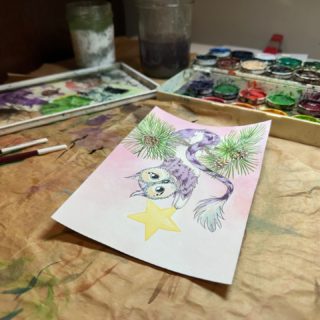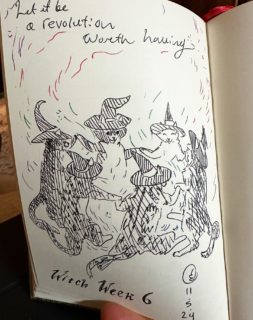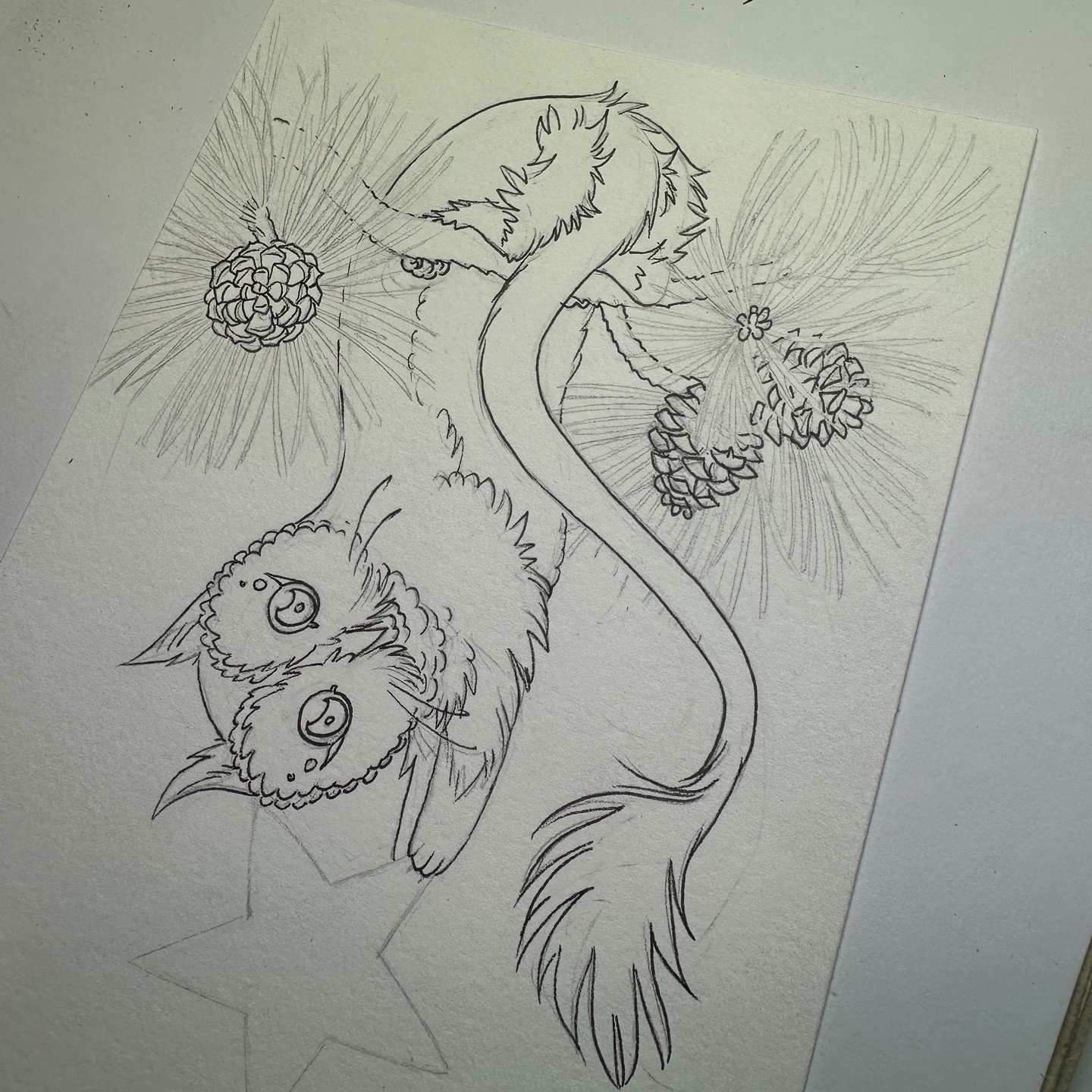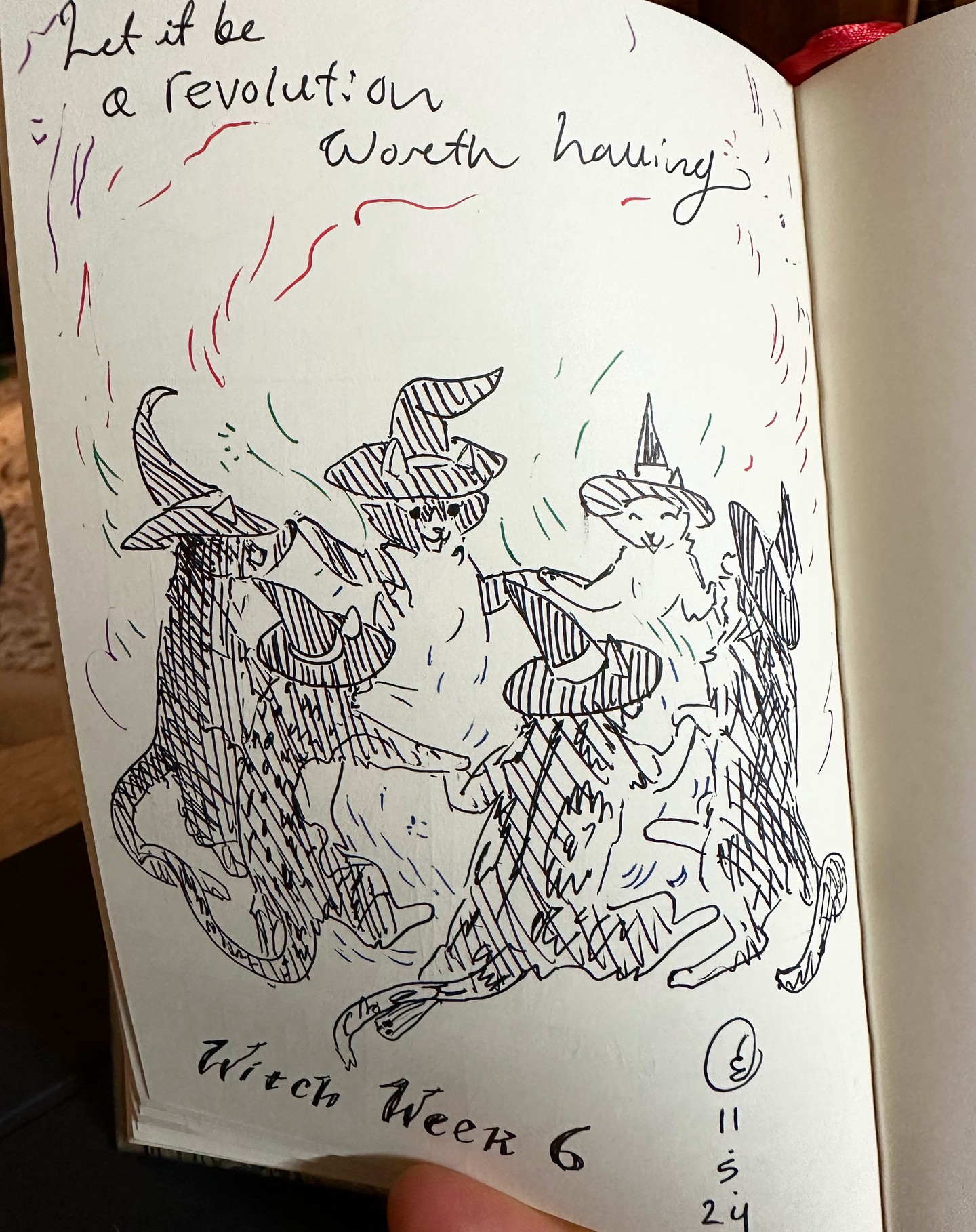or, Training for NaNoWriMo… my way
November is coming up, and already in writerly circles you can hear the whispers… “NaNoWriMo is coming…” “Are you going to do it?” “Did you do it last year?” “Did you finish it?”
NaNoWriMo, short for National Novel Writing Month (ironically, it is now an international sensation), is a writing event that pulls in people from all walks of life—some people who don’t write a word any other month of the year will knuckle down come November and try to write a 50,000 word story in thirty days. And if the contents of my inbox around this time of year is anything to go by, a lot of them don’t succeed.
This has bothered me, in a frustratingly vague sort of way, for years. A part of it comes from the very nature of the challenge itself: namely, to write write WRITE without any regard for quality or worth. This can be an excellent practice if one is suffering from nervous writer’s block—but it is not something that will work well for every writer. Indeed for some it can be downright damaging.
There are some writers who are painstakingly slow at writing their books. This does not make them bad writers. They are slow writers. That is fine (though fans of George RR Martin might object). A professional writer does not need to practice the OPEN THE FLOODGATES method of writing in order to get themselves to progress on their novel. They do it, bit by bit, and eventually the thing is finished, and it is better for them having taken the time to do it their way and get it right.
Then there are writers who write a ton. They write industrial shipping frigate-loads of words day in and day out—and that is the way they work. And these writers (hi, Dean Wesley Smith!) usually write more per month than NaNoWriMo’s arbitrary 50,000 benchmark. So they don’t need NaNoWriMo either.
Who does this leave to benefit from NaNoWriMo? Ah yes, the beginners. But I would not wish any beginning writer who is a friend of mine to feel any obligation to participate in NaNoWriMo. Sure, it’s exciting, and there’s that team spirit that comes from knowing you’re in it together with a bunch of other people, but in the end the load of averaging 1,667 words per day (which is the minimum you’ll have to average in order to reach 50,000 by November 30) is often too much for a beginning writer—similar to the way running a marathon is too much if you’re not already a fairly good runner—and when they fall short at the end of the month they feel like they’ve failed. Which can make them depressed. Which can make them never want to write again.
Which is not what I want to happen to any beginning writer anywhere. Ever.
Being a beginner at anything is hard. Writing gets easier the more you do it—the better you get at it—but in the beginning it’s hard. So if you’ve never written a story before I wouldn’t recommend trying NaNoWriMo as an icebreaker. Start with something less intense—something that you can adjust to fit your own personal needs and strengths. A 5,000 word short story in November, perhaps. Or, if you want to write a novel, give yourself at least a year. With 365 days you’d only need to average 137 words per day to write your 50,000 word novel. 137 words is nothing. Unless you’re writing with a quill pen by candlelight in a drafty stone tower on crusty parchment, a completely newbie writer should be able to manage 250 words a day without much trouble. 500, if they have good powers of concentration and quick fingers. 500 words a day for 365 days is a whopping 182,500 words. That’s over three NaNoWriMo novels, or two full-sized 91,000 word novels. Think about that. With only 500 words a day, you could write your epic trilogy in less than two years and have time for a day job.
And then, once you’ve got the hang of writing stories, maybe come back to NaNoWriMo and see if it’s for you. But my guess is it won’t be. Either you’ll have settled into your slow and steady pace, or, a la Dean Wesley Smith, you’ll be cruising along at a merry 80,000 words a month and be like “What? NaNoWriMo? I can’t afford to have a 50k word month! I’ve got eight novels and fifteen short stories to finish by the end of the year!” (Many of your writer friends will be jealous of you, but you’ll live.)
Or… not. Maybe you’ll be like me and have this nagging feeling of insufficiency. Maybe the reason NaNoWriMo really bothers me is because I’m afraid to try it. Maybe I’m afraid that, despite having written three novels and dozens of short stories/novellas and having every intention of being a professional writer, I couldn’t knuckle down and put out the words.
So I have decided, this year, to accept the challenge of NaNoWriMo. Sort of. On my own terms.
You see, I have a very carefully constructed schedule by which I write. I have a list of stories that need writing, which currently contains enough material to keep me busy for the next decade. And that list does not contain any convenient 50,000 word novelettes (in my head a novel has to be at least in the 80,000 word neighborhood but that’s only a matter of personal preference). So I have decided not to write a single story, but merely to aim for the meat of the challenge: That 50,000 word limit.
In November 2013 my goal is to write 50,000 words of usable fiction. That is, fiction I will be able to sell and publish. Fiction that will contribute to my livelihood. The 50k doesn’t have to all go to one story or even one series of stories. It’ll likely be spread out across the three main series I have ongoing at this time (Bouragner Felpz, Driving Arcana and Professor Odd, for those curious) and perhaps overflow into little one-off short stories. I don’t necessarily have to finish any of them (I prefer to let all my stories dictate their word-length individually; better to let a story be as long or as short as it likes, rather than trying to artificially lengthen or shorten it), I just have to write fifty-thousand words of fiction in 30 days.
Actually, 22 days, because this November I’m going to allow myself eight non-writing days. First, the weekend of the 9th and 10th when I will be at a Renaissance Faire playing squire to a friend who does medieval sword fighting demonstrations; second, the week of the 20th through the 25th, when I will be traveling to and from Chicago for Midwest FurFest. While I may surprise myself and manage to get in a little writing in the corners, those are not days where I will be able to count on writing 1,000+ words. So instead of 1,667 words per day, I’m going to be pulling 2,273 words per day minimum. Even though 2,273 is what I’ll have to average, if I set it as my minimum I’ll likely go over it by at least a small amount each writing day, thus banking a store for days near the end, or against unforeseen catastrophes.
What makes me think this is at all doable? Well, because I’ve actually been writing more this past year than I ever have before. I am, you could say, in training. I may never have run this marathon before, but I’ve done a lot of running, as it were. I know roughly how much time I’m going to have to budget for that many words per day, and I have a huge backlog of stories waiting to be written, so I’ll have no problem thinking of things to write.
I’ve been grinding away at this writing exercise for a long time. Now I’m just going to sprint for a while.
And after November? I’ll go back to my usual 500 word day minimum. I’ll still have more stories to write, after all.
During November I doubt I’ll be blogging much (want to save typing energy for FICTION!) but I’ll try to post weekly updates with word counts for the previous days and track how much goes into which stories—as much for my personal records as anything else.
If I have any advice for someone considering NaNoWriMo this year, I’d have to say (other than don’t feel you have to play by their rules, or that you have to do it at all) is: start writing now. Get in practice. Get in training. Marathon runners don’t just bounce off the couch and run 26 miles in three hours. They have to train. They have to work. So will you, if you want to write over a thousand words of fiction every day for a month. Don’t worry about running out of ideas: the more you write, the more ideas you will get. And if you find yourself happily jogging along at 250, 300, or 500 words a day, don’t feel obligated to sprint along with everybody else. You’re doing just fine as it is.
Because the practice of writing, unlike a marathon, has no finish line. There will always be another novel, another story, waiting to be told. Writing is a long game with no polarized winners or losers and lots of possible endings: don’t burn yourself out before you find the one you want.
*
Goldeen Ogawa is a writer, illustrator and cartoonist. She has never run a marathon but she has ridden her bike up and over a 7,000 ft tall mountain. You can email her at goldeenogawa@gmail.com or peck at her on Twitter @GrimbyTweets.


























